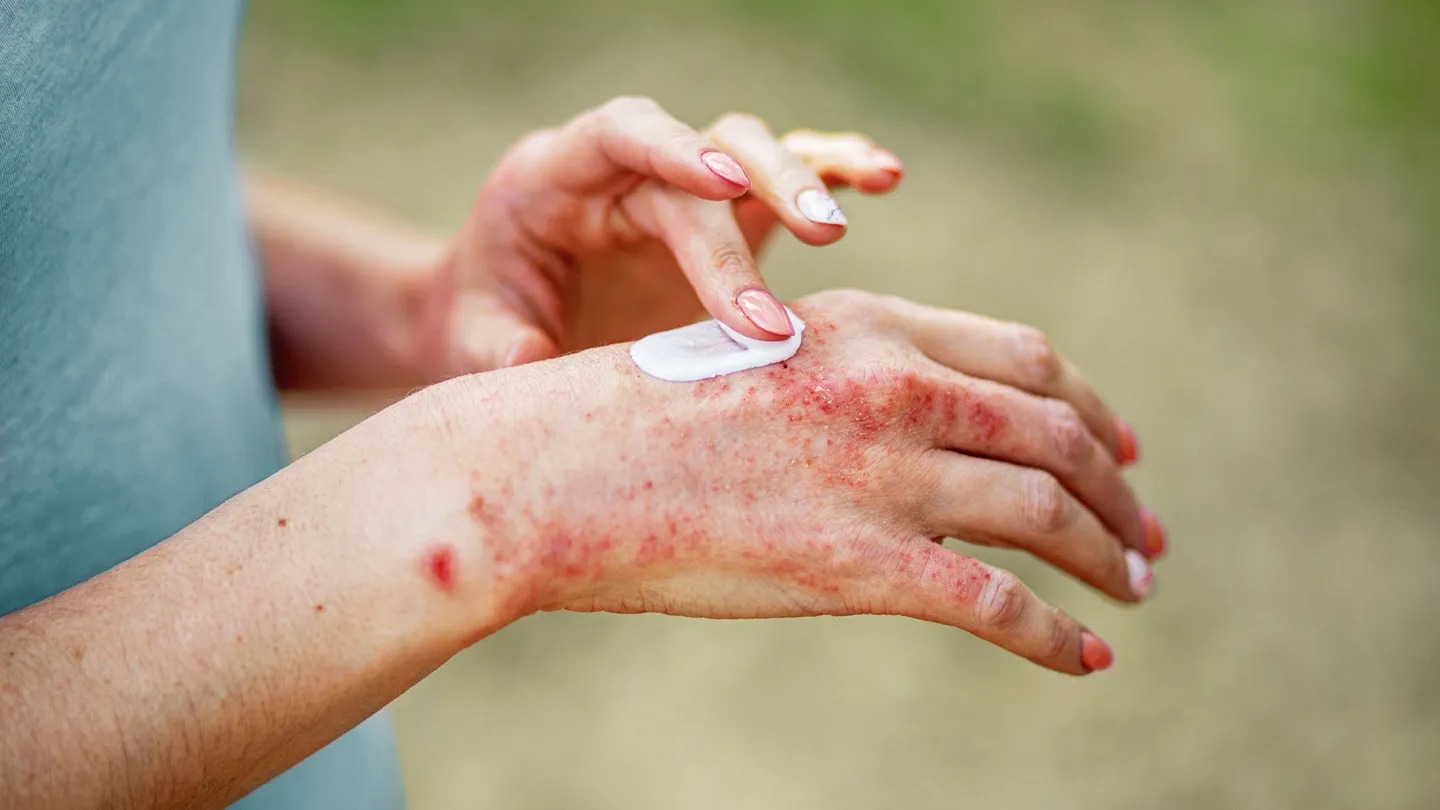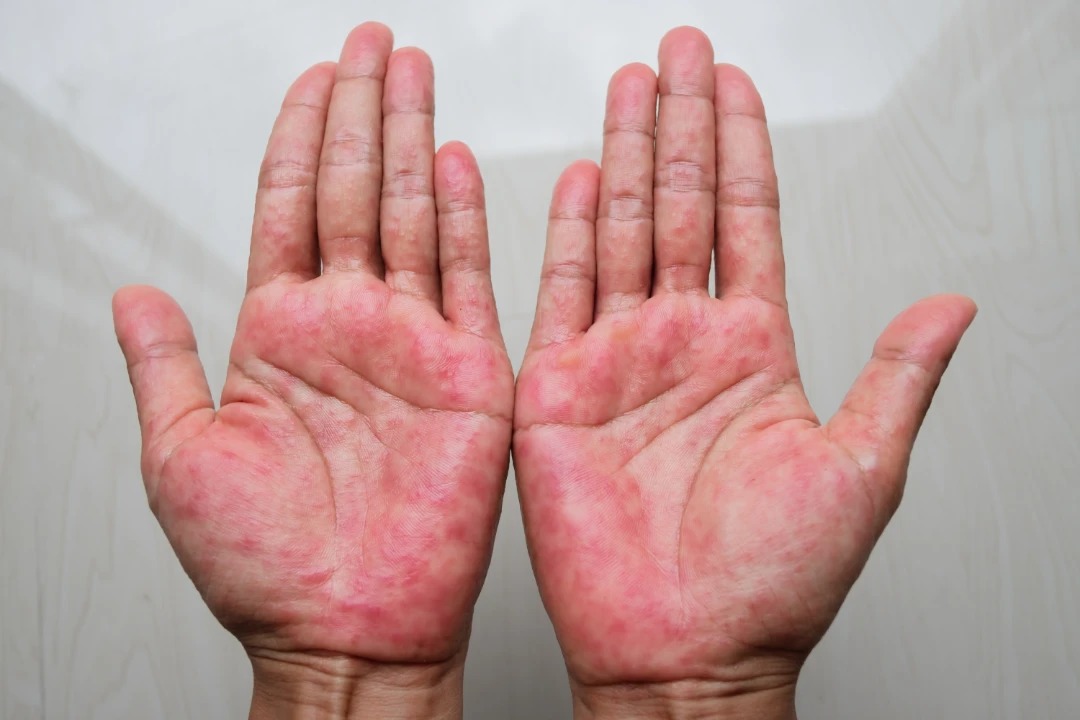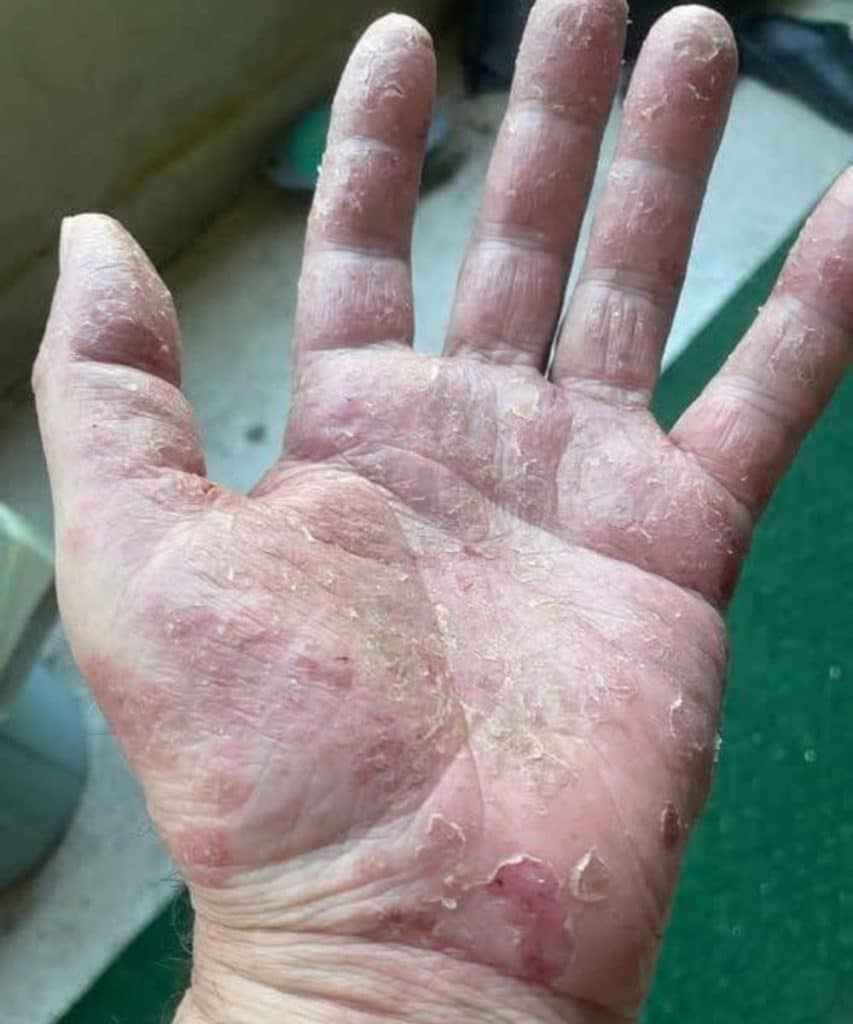• Underlying conditions such as atopic eczema or psoriasis, which raise the risk of chronic hand dermatitis.
• Environmental factors — cold, dry weather can make symptoms worse, while humid conditions may prolong flare-ups.

Recognizing the Symptoms
Symptoms differ in severity but usually include:
• Red, swollen, and irritated skin that may feel warm to the touch.
• Dryness, flaking, and peeling as the skin’s outer layer breaks down.
• Painful cracks or sores that may bleed.
• Persistent itching or burning that disrupts sleep and daily routines.
• Thickened, roughened skin in long-term cases.
If untreated, the condition can worsen and lead to infection. Warning signs include pus, swelling, or severe tenderness.
Treatment Approaches
Managing hand dermatitis often requires both medical care and lifestyle changes. Helpful strategies include:
• Applying thick, fragrance-free moisturizers or ointments several times a day to restore hydration and strengthen the skin’s barrier.
• Wearing gloves when cleaning, washing dishes, or using chemicals. Cotton liners beneath rubber gloves can reduce sweat buildup.
• Using gentle, soap-free cleansers instead of harsh antibacterial soaps. Always dry hands well and moisturize immediately afterward.
• Prescription creams or ointments — corticosteroids may reduce inflammation, while calcineurin inhibitors or other medications can help in more serious cases.
• In severe or persistent situations, dermatologists may suggest light therapy or oral medications.

When to See a Doctor
Self-care may ease mild cases, but professional help is needed if:
• The condition disrupts daily activities.
• Painful cracks, bleeding, or open wounds develop.
• Over-the-counter remedies don’t provide relief.
• Signs of infection appear.
A dermatologist may conduct patch testing to detect allergens and design a tailored treatment plan.
Final Thoughts
Although hand dermatitis might seem like a minor skin problem, it can deeply affect everyday life. Even simple tasks such as cooking, typing, or shaking hands can become difficult and uncomfortable. The good news is that, with proper treatment and preventive care, many people can manage flare-ups successfully and protect their skin from lasting damage.

